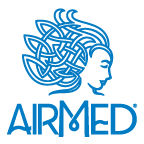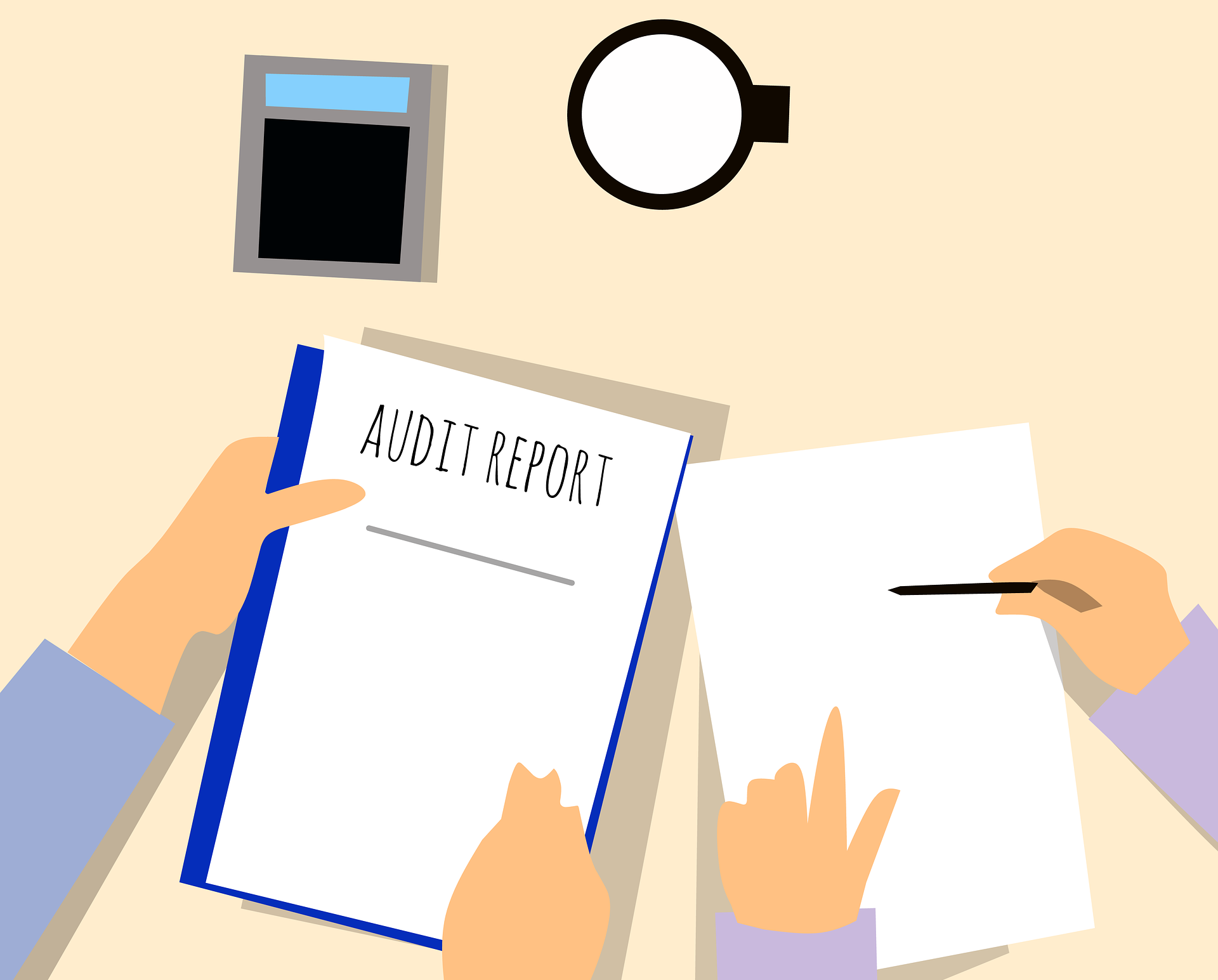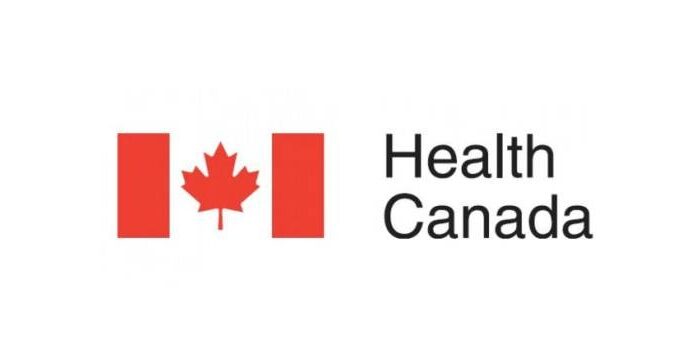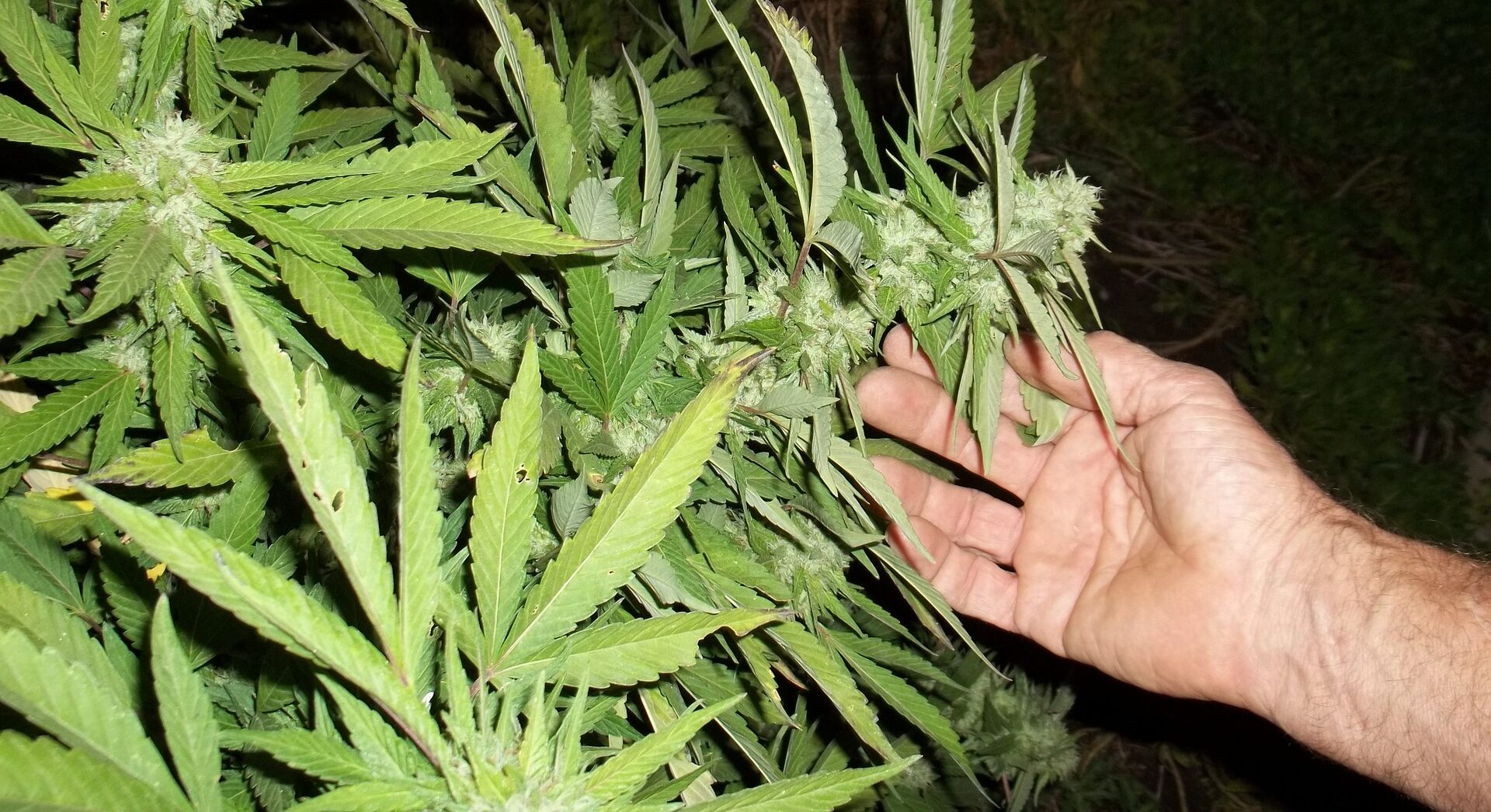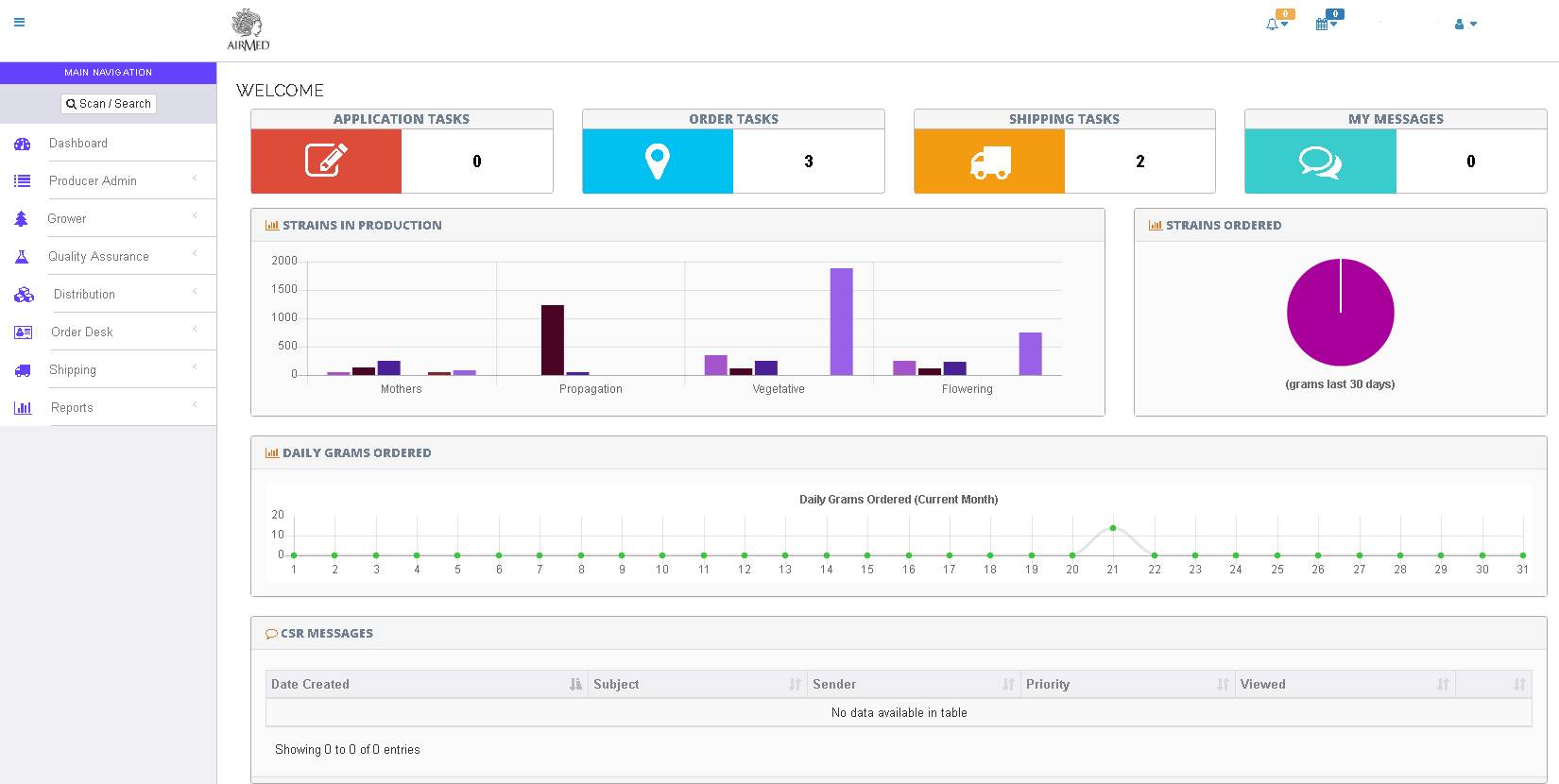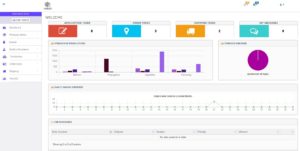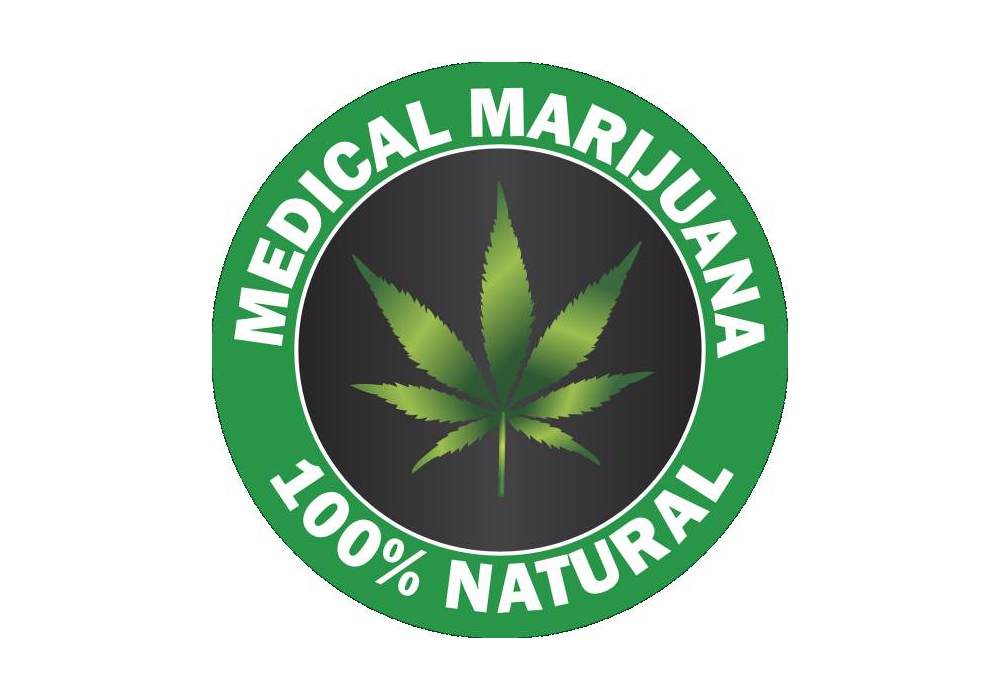Managing Extracts, Edibles & Topicals in AirMed

For those wishing to process extracts, edibles and topicals, AirMed offers comprehensive features dedicated to these classes of cannabis.
Extracts, edibles and topicals are categorized as special classes of cannabis due to the unique public health and safety risks they present. As a result, these cannabis products have specific requirements pertaining to their formulation, production and composition.
Health Canada licensed processors have a broad base of data management needs to maintain compliance and accurately complete the monthly CTLS report. AirMed has developed a full range of functionality to meet those needs.
As with all elements of our system, comprehensive tracking and reporting is available. AirMed tracks and reports on every aspect of processing with specific fields for managing extracts, edibles, and topicals as well as their materials and lots.
Access to the AirMed software functionality that manages these cannabis classes is controlled on a user-by-user basis. Workforce management in our software utilizes configurable departments and job roles to control which workflows workers are authorized to use. You determine who is given rights to these production areas based on the needs of assigned job roles.
The AirMed cannabis record management system has separate production sections for extracts, edibles and topicals with workflows designed specifically to meet their requirements
AirMed offers workflows for storing extractions after processing for further processing or for blending with other materials and more. Weights are tracked to five decimal places for precision and reporting.
Packaged products can be sold individually to medical clients or as packaged products to recreational users.
Packaging features in AirMed include the ability to create discrete units such as edible gummies or gel caps, which can be recorded individually in groups or as bulk packages.
Packaging of discrete units can be one discrete unit in a package, multiple discrete units in a package, or bulk discrete units in a bulk package for either storage or to sell as bulk units to another licensed producer.
All labels are produced and created from within AirMed and can be customized to your needs.
To facilitate the sale of products to provincial warehouses, AirMed offers GS1 barcoding and configuration for tracking product cases and master cases.
Inventory management in AirMed is designed to provide a centralized view of your current stock levels of all products to help control costs, manage planning, and forecast with extensive reporting tools.
Shipping is easy with built-in functionality and integration with Purolator services.
Each field related to extractions, packaging, discrete units, samples, and order fulfilment is automatically included by AirMed in Health Canada CTLS and CRA monthly reporting.
With more stringent requirements for these cannabis classes comes a greater need for control and risk mitigation. Quality management (QMS) helps you provide the finest you can offer while reducing risks.
To give our clients the best chance of cultivating success, we’re building a range of QMS features into AirMed to support Good Production Practices (GPP) and a Preventive Control Program (PCP).
No other cannabis record management system offers the breadth of functionality, ease of use, and comprehensive features to cover all classes of cannabis and help you control cost.
- Dried cannabis
- Fresh cannabis
- Cannabis plants
- Cannabis plant seeds
- Edible cannabis
- Cannabis extracts
- Cannabis topicals
To read about the Health Canada requirements related to processing cannabis extractions, edibles and topicals, read the guidelines at: Government of Canada.
For more information about the features in AirMed, visit our Software page.
To schedule a free demo of AirMed, please use the button at the top of the screen or fill out any of the contact forms.
And if you’d like to learn more about any of the features mentioned, give us a call at 1-877-313-2442.
Role-based Management in AirMed
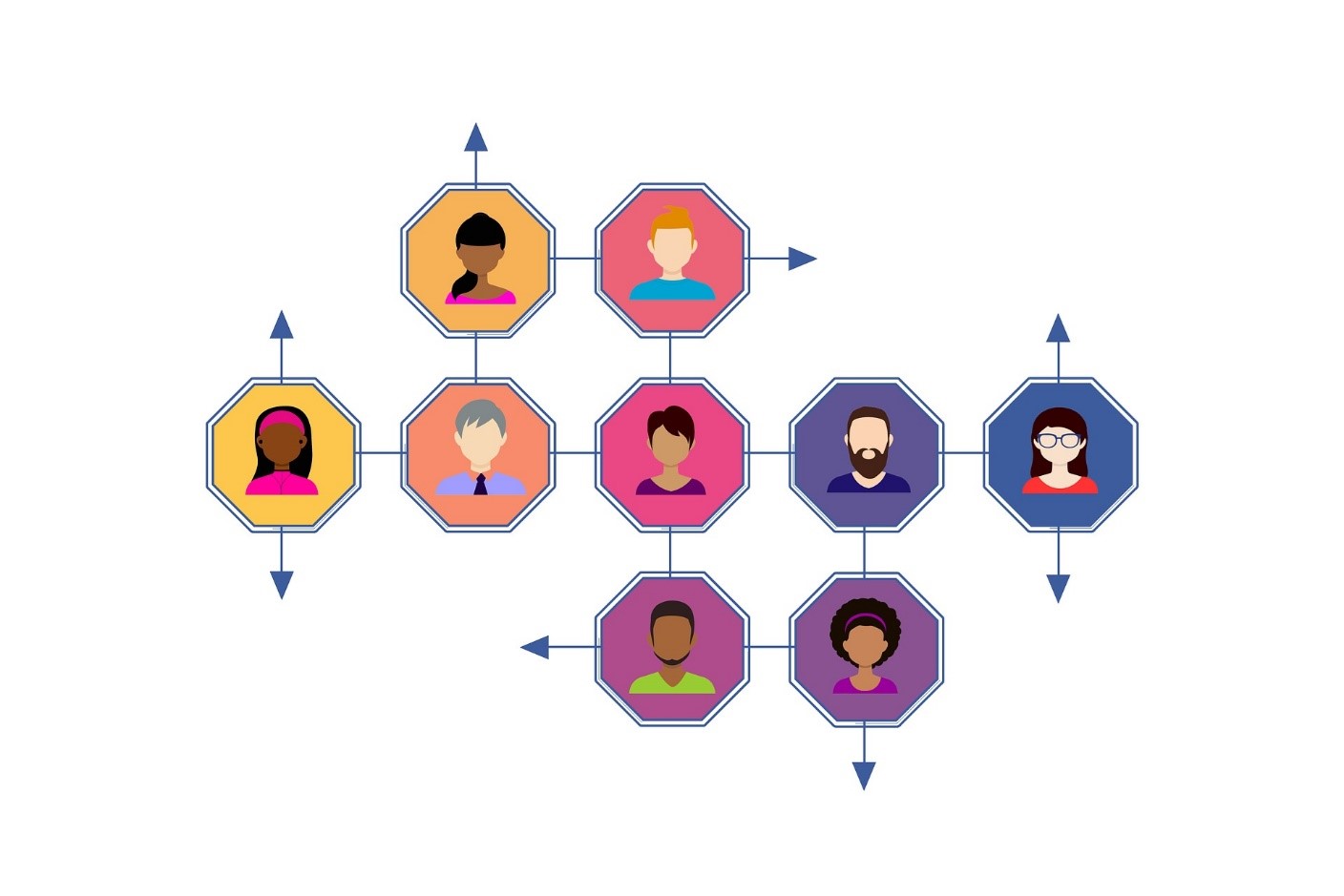
Role-based management in AirMed helps control employee access to the software system.
Actions within AirMed are linked to roles. When you assign a role to an employee, you allow access to those actions.
Employees can be assigned to the roles that correspond to the requirements of their jobs. Employees not assigned to specific roles are prevented from accessing the associated workflows.
For example, if a staff member is new and working in cultivation, you can create a role that only provides access to certain actions in the Source Material, Batch, and Lot Details screens. All other action items will not be visible. This lets you restrict access to parts of the system, based on a user’s job function within your organization.
AirMed has several roles defined by default, but you can create as many roles as required. You can also edit or rename existing roles to match your organization’s workflows. Within each role you can specify which actions are associated.
For more information about how roles can help you manage employee access, contact us today by using one of the contact forms or by calling 1-877-313-2442.
For more information on how AirMed helps you business, visit our Software page or our Frequently Asked Questions page. If you’d like to discuss your specific needs, please give us a call at 1-877-313-2442 or use one of the contact forms to start the ball rolling.
AirMed still 100% Canadian owned

As US corporations buy up seed-to-sale software companies in Canada, AirMed is still 100% Canadian owned.
AirMed was created in 2014 to help Canadian licensed producers meet compliance at all levels of government. Continuously innovating since then, we believe that building a culture of quality is an important part of our customers’ success. This commitment to quality is why a growing list of cultivators, nurseries, processors, manufacturers, and dispensaries use AirMed.
We rely on industry requirements and customer feedback to drive AirMed development, rather than investor pressure. We encourage our users to tell us what matters most to them in a cannabis management system. This feedback helps guide us in adapting AirMed to improve efficiency, productivity and user experience.
Our goal is to provide a responsive solution that not only meets customer needs but anticipates them, regardless of the size or focus of your cannabis business. That has been our driving force for nearly eight years.
Contact AirMed for a demo today to see what homegrown can do for you. Call us at (877) 313-2442 or use the contact form in the footer of this page.
For more information about AirMed, visit our About page or our Frequently Asked Questions page. If you’d like to have a conversation about AirMed, please give us a call at 1-877-313-2442 or use one of the contact forms to start the ball rolling.
Support for GS-1 Barcoding Standards in AirMed
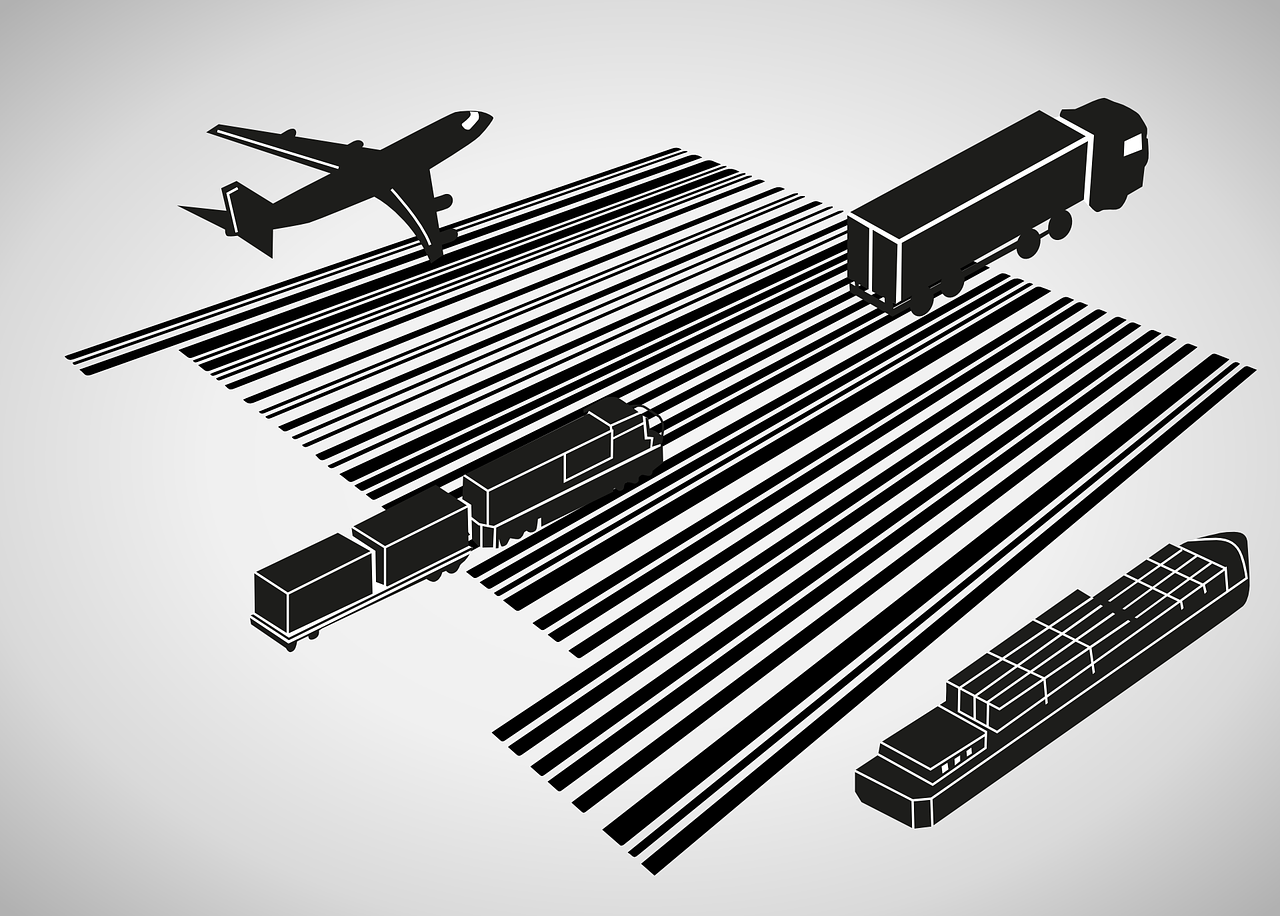
AirMed software offers full functionality for multi-level packaging with layered barcoding that meets GS-1 barcode standards. This is the standard required to sell to provincial government distributors.
Licensed producers who use AirMed can assemble retail-ready individual product packages using a ‘master case’ system and identify and track products at each packaging level.
AirMed software offers full SKU and barcode management that supports GS-1 barcoding standards. Pricing can be set at the package or master case SKU, and custom pricing can be set for specific SKUs by customer. The software offers features for creating and processing the orders as well as fulfilling and shipping them to provincial agencies.
Our master case processing lets you use layered barcoding for individual containers through to cases of multiple containers. The AirMed track-and-trace system allows retail packages to be traced to the lot or batch and ultimately back to the original genetic material. And AirMed has a comprehensive multi-step recall process that completely automates recalls if they are ever needed.
To schedule a live demonstration of AirMed Cloud software, call us at 1-877- 313-2442 or click the Request Demo button at the top of the screen.
For more information on how AirMed helps your business, visit our Software page or our Frequently Asked Questions page. If you’d like to discuss your specific needs, please give us a call at 1-877-313-2442 or use one of the contact forms to start the ball rolling.
Manage Plants Individually or by Group in AirMed
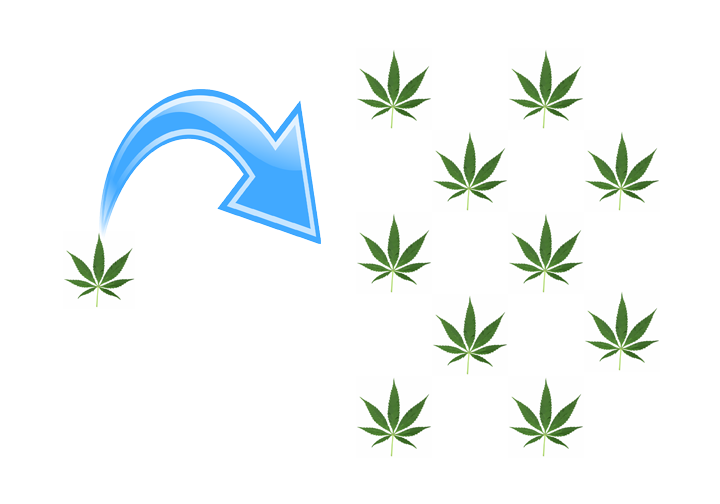
AirMed gives you the flexibility to choose whether to manage plants individually or in groups.
Individually managed plants allow for each plant to be tracked independently using its unique barcode. This method of tracking the plants offers full precision by providing detailed information about the individual plant and letting you perform actions on each plant separately. Plant actions are recorded by scanning the barcode associated with the plant using a tag or container label.
Individual management is usually reserved for small batches or for mother plants where tracking of the individual plant is beneficial. Group management is recommended for larger crops intended for harvest as the tracking is simplified.
Group-managed plants are recorded by counts and do not need to be identified by a unique barcode, so there is no requirement to print off labels for each plant. When selecting plants to perform an action at the batch level, a count of plants is recorded for either a table or a room.
Plants are propagated as part of a batch, and records are maintained through each grow phase such as drying or harvesting at the batch level. The production process ends with the creation of a lot, which is linked directly to the batch. Post-production, including bulk storage or packages, is also tracked by the batch.
By default, plants are individually managed until you make the decision to covert them to group management. AirMed lets you choose which method is the most appropriate and efficient while still maintaining accurate records.
To find out more about AirMed features like group management, call us today at 1-877-313-2442 or use one of the contact forms to request a free demo.
CTLS Reporting in AirMed
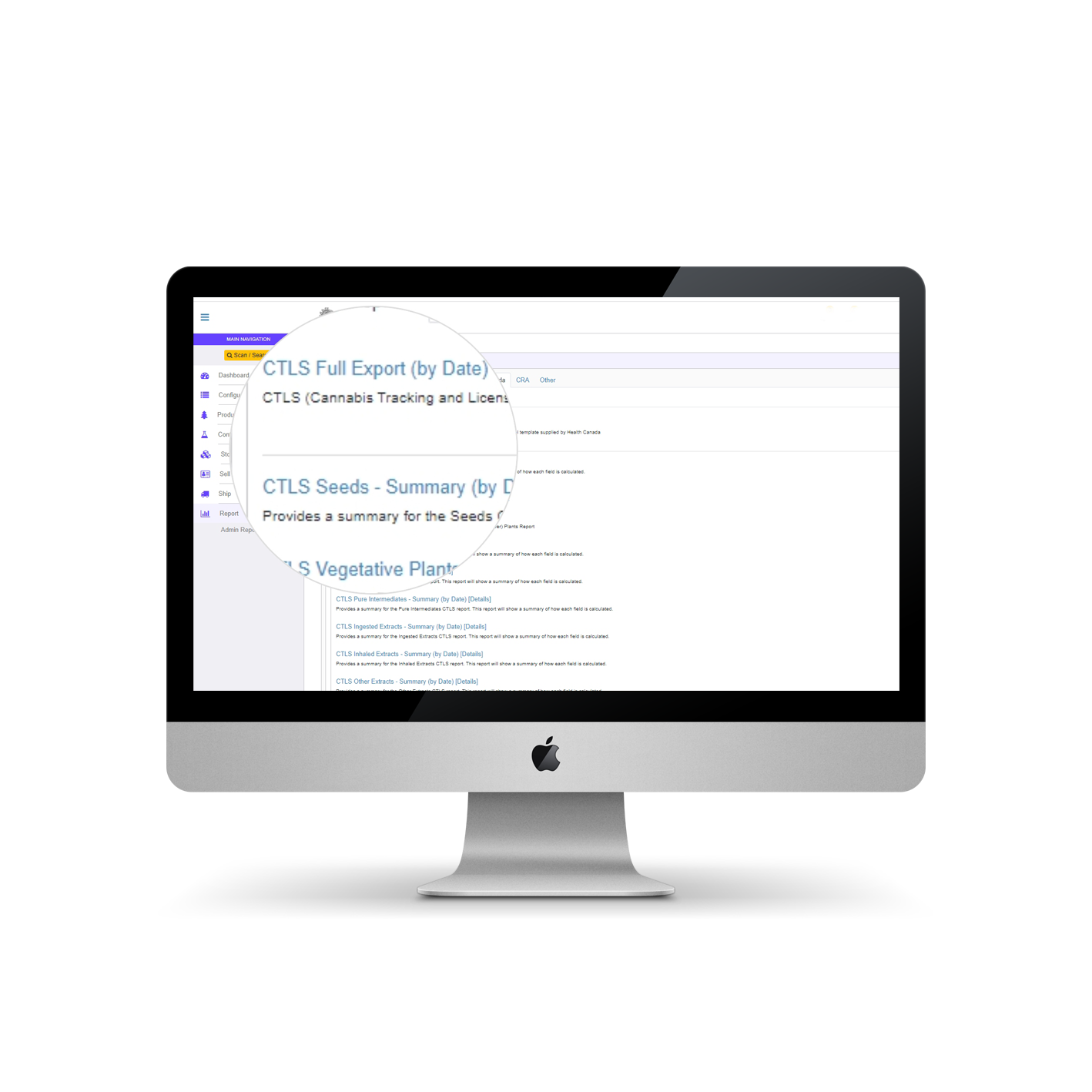
Always innovating to help our customers meet the regulatory challenges they face daily, AirMed offers a new automated system for CTLS reporting.
As mandated by the Cannabis Act, Health Canada requires that licensees submit a Cannabis Tracking and Licensing System (CTLS) report every month for every licensed site. This reporting applies to cultivators and processors (including micro, standard or nursery), as well as sellers of medical cannabis and provincial or territorial authorities, distributors and retailers.
Full Export
Using our new full export process, thousands of reported fields tracked by AirMed will automatically populate the standard spreadsheet template provided by Health Canada. Not only is the time required to complete monthly reports reduced, but the potential for human error often encountered in manual data entry is eliminated.
Summary Reports
AirMed also includes a suite of CTLS summary reports offering breakdowns of key fields with direct links to detailed reports. You can identify the values used to calculate a final total and also find the exact inventory records used to calculate those values, all from one page. Inventory validation has never been easier.
For more information or for a free demonstration of our automated CTLS reporting, please call 1-877-313-2442 or use the contact form linked at the top of the page. In the meantime, visit our Software page.
Quality Assurance in AirMed
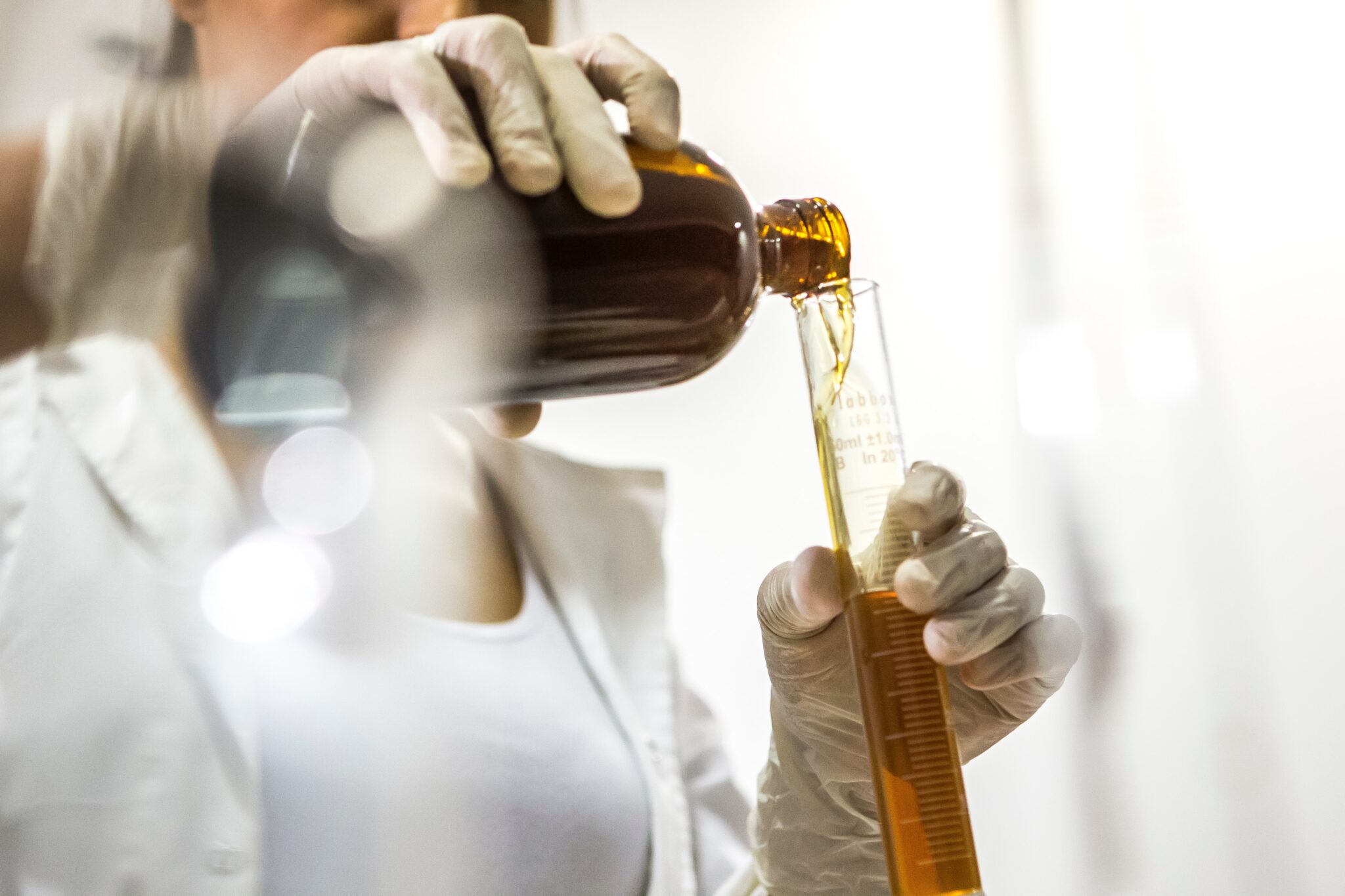
AirMed provides licensed producers with a complete framework to establish and validate a quality assurance system.
The AirMed QA system is based on pre-defined North American and European pharmacopeia.
The system tracks testing results for the samples taken at any stage of production and enables shipping of samples to third-party QA labs. Results and certificate of analysis documents are logged and used to determine if the material the sample was derived from is acceptable for sale. Test results are verified by an authorized QA person and a passed or failed status is assigned to each data point. The QA results are maintained in the system and can be referenced at any point to review the values.
From reviewing non-conformance to documenting and communicating findings, AirMed helps you maintain your desired level of quality. Tracking attention to detail for every process gives you total confidence in your product.
For more information about quality assurance in AirMed, visit our Software page. You can also schedule a live preview of the software by clicking the Request Demo button at the top of the screen. Or give us a call at 1-877-313-2442.
Reporting & Auditing in AirMed
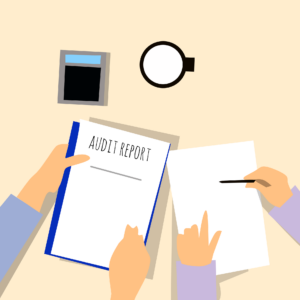
AirMed software is specifically designed to meet or exceed Cannabis Act regulations with full audit support capabilities and comprehensive reporting. AirMed regularly passes Health Canada inspections. For more information visit our Compliance page.
AirMed is designed to support and comply with federal, provincial and local legislation. In fact, AirMed meets the USA’s FDA 21 CFR Part 11 regulations. Considered to be some of the most comprehensive electronic record keeping specifications in the world, they are the basis for the standards set by many countries.
AirMed pulls all the required information for all government reporting, whether monthly, quarterly, or annually. Reports are built in for Cannabis Licensing & Tracking System (CTLS) and Canada Revenue Agency (CRA). Supporting sub-reports provide the necessary validation detail. Export data to other systems or print reports to retain the required information outside of AirMed as archived printed or electronic records.
Every action/workflow in AirMed is auditable, and built-in audit reports & forms provide complete product traceability. Inventory, recall, destruction and other reports can be generated as needed. Authorized site auditors can be given access to perform inspections of records. AirMed retains all data indefinitely and lets you export or print reports to be held for required retention periods for audit purposes.
For more information about AirMed’s reporting and auditing features, schedule a free demo by clicking the Request Demo button at the top of the page or by using the contact form in the footer. You can also call us directly at 1-877-313-2442.
How Secure is AirMed Software?

AirMed seed-to-sale software is a Cloud-based platform hosted in a third-party, Tier 3, SSAE 18 SOC1/SOC2 compliant, hardened data center in Canada, and all data remains in Canada. The same data center is used by Canadian banks and government agencies to secure their web-based applications. All data in AirMed is protected by fully managed and monitored enterprise firewalls and intrusion detection/prevention systems.
All communication between the browser and the server is encrypted using SSL. Sensitive data is additionally encrypted while at rest in the database. When a barcode is scanned, the resulting code is input into a field within the web browser. This data is then encrypted and sent to the server for processing.
Administrators can configure access based on an employee security profile so that individual workers only have access to the functions and data that relates to their job responsibilities. Electronic signatures and multi-factor authentication ensure only authorized users can access information and complete tasks. Full audit trails for every record and every action in the system allows administrators to review changes anywhere at any time.
All data is backed-up both locally in the data centre for near-line recovery and to a secure offsite location in Canada for disaster recovery purposes.
To learn more about AirMed’s privacy and security, contact us today by using the contact form or by clicking the Request Demo button at the top of the screen. You can also give us a call at 1-877-313-2442.
AirMed Compliance Documents for Health Canada Cannabis License Applicants

The Cannabis Act requires that license applicants provide information on how they expect to meet certain compliance requirements.
We offer full support throughout your license application process and provide documentation that outlines how AirMed meets Health Canada requirements. If you plan to use AirMed for compliance after you are licensed, you submit the documents we supply as part of your application. We also partner with specialists in licensing applications and business management if you need more help.
For applicants who expect to use AirMed to help meet compliance, we provide two comprehensive documents designed for submission with license applications.
AirMed Record Keeping Compliance: This document provides an overview of how AirMed provides support to enable a licensed producer to be compliant with the record keeping & reporting requirements of the Cannabis Act and Regulations (CAR) and the former Canadian Access to Cannabis for Medical Purposes Regulations (ACMPR). This document is intended to assist compliance auditors and internal compliance leaders in assessing readiness in relation to CAR requirements, as well as security and privacy standards.
AirMed Good Practices Compliance: This document provides an overview of how AirMed provides support to enable a licensed producer to be compliant with the good practices requirements of the Cannabis Act and Regulations (CAR).
For more information or to purchase our compliance documents, please call 1-877-313-2442 or email info@airmed.ca. You can also fill out the contact form in the footer.
For more information on how AirMed helps you meet compliance, visit our Compliance page or our Frequently Asked Questions page.
Why you need seed-to-sale software for your cannabis business
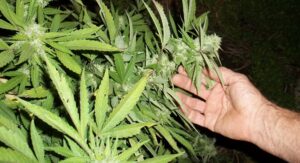 Introduction
Introduction
Seed-to-sale software tracks plant production from reproduction through growth, harvesting, drying, packaging, sales and distribution. Health Canada mandates record keeping for every part of the process, and Canadian seed-to-sale software applications focus on compliance built on Health Canada’s regulations.
Record keeping is an essential part of Health Canada’s compliance regulations. From the advent of legal medical marijuana in Canada, legal producers of cannabis have been required to track every seed, rooted plant, gram of waste material, final dried product, as well as interactions with customers. Due to the sheer volume of information, an electronic record-keeping system is the only practical way to manage the process. The software industry has responded to this need by creating seed-to-sale management software systems designed to help producers track their operations and report to Health Canada to meet compliance.
As a Health Canada applicant, you must specify the name of the software system you plan to use for record keeping and provide a summary of how the software program meets Health Canada’s requirements. As a result, you will need to make at least preliminary decisions into seed-to-sale management software early on in your application process.
This might seem like one more challenge along your path to becoming a licensed producer, but in reality, seed-to-sale software is designed to help you be successful.
Seed-to-sale software platforms should provide the electronic record keeping required to not only for you to meet compliance, but also to help you be successful in your business. From greenhouse to warehouse to customer, your software system should help you at every stage of your operation. Functionality for genetics tracking, inventory management, quality control, shipping & receiving, point-of-sale ecommerce, compliance auditing & reporting, and customer relationship management can provide you with full business administration.
Licensing
To do business in the cannabis industry in Canada, you must meet Canada’s licensing requirements. Currently there are several types of licenses for those wishing to carry out cannabis-related business in Canada.
- Standard Cultivation
- Micro-cultivation
- Nursery
- Standard Processing
- Micro-processing
- Sale
- Analytical Testing
- Research
Regardless of which class of license you get, you will be responsible for complying with all the regulations that apply from the various levels of government.
The Laws
The Cannabis Act
Formerly called the ACMPR, this act covers all aspects of cannabis in Canada from growing through processing to selling and more. It is the responsibility of the licensee/applicant to understand and meet all the requirements that apply to their business.
Other Federal Acts and Regulations
As a licensee or applicant, you are responsible for complying with requirements of other Canadian acts and regulations such as the Food and Drugs Act (FDA), the Pest Control Products Act, the Fertilizer Act, among others.
The Canada Revenue Agency
You’ll also need to meet requirements of the Canada Revenue Agency depending on which activities will be conducted with cannabis.
Provincial or Territorial Legislation
As a licensee or applicant, you’ll be responsible for complying with all applicable provincial or territorial laws and regulations (environmental laws, for example).
Municipal By-Laws
As well, you’ll need to deal with municipal by-laws such as zoning and building permits.
How can seed-to-sale software help?
From the advent of legal medical marijuana in Canada, legal producers of cannabis have been required to track every seed, plant, gram of waste material, final product, and more. Due to the sheer volume of information, an electronic record-keeping system is the only practical way to manage the process.
The software industry has responded to this need by creating seed-to-sale management software designed to help businesses meet compliance. Seed-to-sale software tracks growth, harvesting, processing, packaging, sales and distribution.
And some seed-to-sale software systems go beyond compliance to help businesses cultivate success with features and functionality to help fine-tune propagation, growth cycles, harvesting, production, derivatives, inventory, staffing, and product sales. AirMed is one of those. Wherever your business fits in the seed-to-sale supply chain, AirMed can help with both legal compliance and business acumen. For a free demo, call 877-313-2442, email info @ airmed.ca or fill out the form on our contact page.
For information on cannabis licensing in Canada visit: Cannabis Licensing Application Guide
For more information on purchasing seed-to-sale software, fill out a form to download our complete buyer’s guide: Seed-to-sale Software Buyer’s Guide
New AirMed version lays groundwork for October 17 Cannabis Act changes

A new version of AirMed seed-to-sale software was released October 16, 2019. This is a substantial build that lays the groundwork for the October 17 changes to the Cannabis Act and CTLS reporting.
The new version offers significant updates to the Received Products section of the cloud-based application including the ability to receive into the facility any type of product (edibles are coming soon) either bulk or packaged. The system now allows product to be transferred to a processor and packaged up, then the packaged material can be received back into the facility.
For received products, users now have the ability to add items to an existing lot, back-date inventory adds, and update finished/unfinished designation for new Health Canada regulations. We’ve also added an extraction material type category for new Cannabis Tracking and Licensing System (CTLS) reporting requirements, plus the ability to move all plants in batch and print a timeline report for batch details.
If you are a current AirMed customer, please explore the new features in your sandbox service, and let us know if you have any questions by contacting your customer service representative.
To learn more about the Cannabis Act in Canada visit: What you need to know about cannabis – Canada.ca

For more information on how AirMed helps your cannabis business, visit our Software page or our Frequently Asked Questions page. If you’d like to discuss your specific needs, please give us a call at 1-877-313-2442 or use one of the contact forms to start the ball rolling.
What happens with my seed-to-sale software if regulations change?

The market for cannabis is evolving. Health Canada manages oversight and sets the compliance requirements for legal production of cannabis in Canada. In the last five years, these requirements have changed multiple times and are set to change again with the legalization of cannabis for recreational use on October 17, 2018. A responsible software vendor will ensure that all its clients have the information they need to comply with the latest Health Canada requirements.
With SaaS or cloud-based seed-to-sale platforms, software updates are usually global to all clients/users. On-site implementations sometimes require individual upgrades performed by the client in conjunction with the vendor. Often this means scheduling both parties, which can delay access to the latest features and functionality. If there are modifications for specific clients, this can mean a complicated upgrade path with the risk of unintended software bugs and related down time or additional costs to re-customize.
As you choose your seed-to-sale software solution, be sure to consider the future of compliance and those implications on your business. No one knows for sure what the future holds, but history has shown that the only true constant is change.
For more information about the Cannabis Act in Canada visit: What you need to know about cannabis – Canada.ca
For more information, download our software buyer’s guide here: How to Purchase Seed-to-Sale Software
AirMed Ecosystem: Industrial tablets for your seed-to-sale business

AirMed recommends industrial tablets for use in your cannabis business. These ruggedized hand-held devices are waterproof and dust proof and can withstand a drop from five feet on a concrete floor. They have a built-in barcode scanner and camera and come loaded with Windows 10. The tablets feature a docking station with USB ports for printers, scales, keyboard, mouse and other peripherals.
When configured with AirMed Cloud software and attached to a printer and scale, tablets function as a self-contained workstation to carry out all process-related tasks. They can be integrated with barcode software to capture data throughout your operations. A tablet can serve as the computer for a specific work area such as a nursery or mother room, grow or drying room, laboratory, warehouse or loading dock.
These ruggedized industrial tablets are sold directly through AirMed Canada Systems Inc. and work with Windows applications. If you purchase a tablet through AirMed, it can be pre-configured with AirMed Cloud software as well as Winwedge software for barcode scanning.
These tablets are part of our new AirMed Ecosystem, which integrates AirMed with couriers, printers, scanners, ecommerce software and more. Our new AirMed Ecosystem lets you purchase hardware and software from us in a turn-key solution for your cannabis business. For more information visit our Partners page.
Each product selected for the AirMed Ecosystem is carefully chosen based on its ability to provide value, lower production costs and increase competitiveness for AirMed customers. You create the package that’s right for you from pre-configured hardware and software.
AirMed offers the tools you need in the office, the greenhouse and on the loading dock. Our Ecosystem lets you purchase hardware and software in a turn-key
seed-to-sale management solution.
To learn more about our Ecosystem program, visit: AirMed Ecosystem
To learn more about Winwedge software visit: TalTech
Introducing the AirMed Ecosystem

To help our clients cultivate success, AirMed is developing strategic partnerships with leading vendors of products and services in the Canadian cannabis industry. We’ve partnered with the best in the industry including compliance consultants, hardware manufacturers, telecommunications and delivery services.
The AirMed Ecosystem provides a turn-key solution with integrated hardware and software to help producers become more productive and profitable. From pathogen detection and environmental analytics through barcoding and label printing to ecommerce and delivery, the AirMed Ecosystem provides the best the industry has to offer for your cannabis business.
If you are a licensed producer or cultivator, visit our partnering page to find out more about what we offer and the awesome companies we’ve partnered with: AirMed Ecosystem
If you provide a complementary product or service in the cannabis industry and would like to collaborate with AirMed, click here for a form to request a conversation with a partnering representative: Partner Form
And if you’d like a product demo of AirMed software, call (877) 313-2442 or email info @ airmed.ca.
AirMed supports wholesaling to provincial distributors
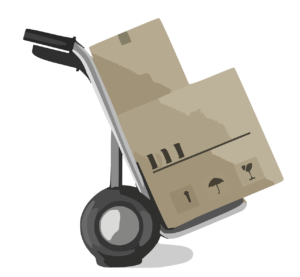
AirMed Cloud seed-to-sale software supports wholesale selling and shipping from licensed producers to other LPs and from LPs to provincial distribution centres.
As a cannabis management system, our software offers full functionality for multi-level packaging with layered barcoding that meets GS-1 barcode standards. LPs using AirMed can assemble retail-ready individual product packages using a ‘master case’ system and identify and track products at each packaging level.
“Our master case processing lets you use layered barcoding for individual containers through to cases of multiple containers,” noted Justin Hearn, President and CEO of AirMed Canada Systems Inc. “AirMed’s track-and-trace system allows retail packages to be traced to the lot or batch and ultimately back to the original genetic material. And AirMed’s comprehensive multi-step recall process completely automates recalls if they are ever needed.”
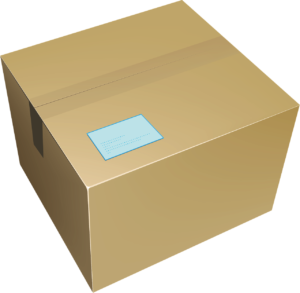
AirMed software offers full SKU and barcode management that supports GS-1 barcoding standards. Pricing can be set at the package or master case SKU, and custom pricing can be set for specific SKUs by customer. The software offers features for creating and processing the orders as well as fulfilling and shipping them to provincial agencies.

“We’re proud to be supporting our customers with full master case inventory control, GS1 integration, comprehensive wholesale order management, efficient fulfillment and tracking, and compliance reporting,” said Hearn. “AirMed’s wholesale distribution module is helping LPs produce, prepare, sell and ship hundreds of thousands of products to the recreational market right across Canada.”
For more information on how AirMed helps your business, visit our Software page or our Frequently Asked Questions page. If you’d like to discuss your specific needs, please give us a call at 1-877-313-2442 or use one of the contact forms to start the ball rolling.
Take a look at our new interface!
A new version of AirMed Cloud seed-to-sale software was introduced at the Lift Expo this month in Vancouver.
AirMed is a cloud-based platform designed for licensed cannabis producers in Canada. The new version offers a more graphical interface and streamlined processes.
Originally designed to help licensed producers meet compliance, AirMed has evolved into a comprehensive business management solution for the Canadian cannabis industry.
“We’ve been developing AirMed since 2014, and no other seed-to-sale software offers the range of functionality we do,” said Justin Hearn, President and CEO of AirMed Canada Systems Inc. “AirMed keeps getting better, and this new interface is the icing on the cake. Not only does it look great, but this release streamlines many processes.”
From cultivation and processing through shipping and receiving, AirMed covers all aspects of cannabis business management, including auditing and compliance reporting. From the moment genetics enter your facility, AirMed helps you manage every stage of your business. At every step, processes with compliance implications are streamlined into easy repeatable workflows, capturing the required data as part of doing business. The software provides a complete framework to establish and validate a quality assurance system. From reviewing nonconformance to documenting and communicating findings, AirMed helps you maintain your desired level of quality.
In fact, AirMed is the only business solution you need to manage production, sale and delivery of cannabis while meeting government regulations.
To schedule an AirMed software demo, email info @ airmed.ca or call 1-877- 313-2442.
What is seed-to-sale software and why do I need it?

Seed-to-sale software tracks plant production from reproduction through growth, harvesting, drying, packaging, sales and distribution. Health Canada mandates record keeping for every part of the process, and Canadian seed-to-sale software applications focus on compliance built on Health Canada’s ACMP (Access to Cannabis for Medical Purposes) regulations.
Record keeping is an essential part of Health Canada’s compliance regulations. From the advent of legal medical marijuana in Canada, legal producers of cannabis have been required to track every seed, rooted plant, gram of waste material, final dried product, as well as interactions with customers. Due to the sheer volume of information, an electronic record-keeping system is the only practical way to manage the process. The software industry has responded to this need by creating seed-to-sale management software systems designed to help producers track their operations and report to Health Canada to meet compliance.
As a Health Canada applicant, you must specify the name of the software system you plan to use for record keeping and provide a summary of how the software program meets Health Canada’s requirements. As a result, you will need to make at least preliminary decisions into seed-to-sale management software early on in your application process.
This might seem like one more challenge along your path to becoming a licensed producer, but in reality, seed-to-sale software is designed to help you be successful.
Seed-to-sale software platforms should provide the electronic record keeping required to not only for you to meet compliance, but also to help you be successful in your business. From greenhouse to warehouse to customer, your software system should help you at every stage of your operation. Functionality for genetics tracking, inventory management, quality control, shipping & receiving, point-of-sale ecommerce, compliance auditing & reporting, and customer relationship management can provide you with full business administration.
What is ACMPR and how does it affect me?
What does ACMPR cover?
For the cannabis industry in Canada, the most critical compliance implications are those covered by the Access to Cannabis for Medical Purposes Regulations. This legislation covers every aspect of marijuana production and sale. Overseen by Health Canada, these regulations must be adhered to at every stage of cannabis business from propagation through to sale. As of August 24, 2016, the Access to Cannabis for Medical Purposes Regulations (ACMPR) replaced the previous Marihuana for Medical Purposes Regulations (MMPR).
ACMPR is designed to provide an immediate solution for Canada to meet legal requirements. But Health Canada is continuously evaluating how a system of medical access to cannabis should function alongside the government’s commitment to legalize, strictly regulate and restrict access to cannabis. As a result, laws and regulations may change.
Currently, the legislation contains four parts.
Part 1 sets out a framework for commercial production by licensed producers responsible for the production and distribution of quality-controlled fresh or dried marijuana or cannabis oil or starting materials (i.e., seeds and plants) in secure and sanitary conditions.
Part 2 sets out provisions for individuals to produce a limited amount of cannabis for their own medical purposes or to designate someone to produce it for them.
Parts 3 and 4 include transitional provisions, consequential amendments to other regulations, and provisions repealing the MMPR.
All those wishing to produce cannabis in Canada must apply to Health Canada to become a licensed producer under the ACMPR legislation, and all licensed producers MUST comply with the ACMPR regulations.
What are the specific ACMPR regulations that affect software and record keeping?
The ACMPR has many regulations that apply to the medical marijuana industry in Canada as a whole. Not all of those have implications for record keeping or to the method (software) used for that record keeping. (For links to the different websites that cover ACMP see More Information at the end of this document.)
How do I meet ACMPR compliance?
To be ACMPR compliant, your organization must have ways of meeting all of the regulations listed above.
Many of the regulations listed above apply to processes, so you’ll need to be utilizing best practices and documented standard operating procedures. You’ll also need to be able to prove to Health Canada that you have used best practices. That’s where seed-to-sale software comes in. Your cannabis business management software should provide you with the means to meet compliance when it comes to record keeping and reporting.
To support you in this process, a viable software vendor will supply you with a document that outlines exactly how the system they provide meets those requirements.
For more information on seed-to-sale software, download our buyer’s guide, which answers to the following questions.
What does seed-to-sale software cost?
How do I choose one software platform over another?
What should I be looking for in the software?
How does the software fit into my business?
How is my data stored and secured?
What happens if regulations change?
Download the buyer’s guide here: How to purchase seed-to-sale software
For a free demo to learn how AirMed meets these and other regulations, please call 1-877-313-2442, use clikc the Request Demo button or email info@airmed.ca.
AirMed's History

Back in 2014, a group of Canadian tech visionaries recognized the opportunities in the emerging cannabis industry in Canada and began building the AirMed software system.
AirMed’s founders have decades of experience in the technology sector with expertise creating business-to-business applications for highly regulated industries including pharmaceutical, healthcare, law enforcement and financial services.
Originally designed to help licensed producers meet compliance, AirMed has evolved into a comprehensive business management solution for the Canadian cannabis industry.
Named for the goddess of healing herbs, AirMed has become one of the leading seed-to-sale systems in Canada. With the introduction of the AirMed Ecosystem, AirMed offers a turn-key solution with integrated hardware and software to help producers become more productive and profitable.
For more information on AirMed, visit our About page. If you’d like to discuss your specific needs, please give us a call at 1-877-313-2442 or use one of the contact forms to start the ball rolling. You can also book a demo of AirMed by clicking the Request Demo button or using any of the contact forms.
Medical Marihuana in Canada: Where We Are Today
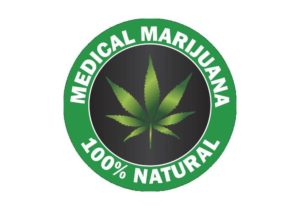
The legal use of marihuana for medical purposes in Canada has a long and complex history. Cannabis has been on the Schedule of the Opium and Narcotic Control Act since 1923. While proponents lobbied and commissions reviewed many times over several decades around the world, nothing significant happened with the legalization of cannabis until 1976 when the Netherlands effectively decriminalized the plant’s use. This set off a wave of activity that included one U.S. state recognizing the medical value of marihuana 1978. But the debate continued and most countries were reluctant to jump on the legalization bandwagon.
There was, however, no denying the health benefits, which were being documented in medical studies around the world and included:
- Decreasing anxiety
- Lessening of pain for sufferers of chronic conditions
- Reducing muscle spasms of multiple scleroses and similar diseases
- Treating glaucoma
- Controlling the symptoms of seizure disorders such as Epilepsy and Dravet's Syndrome
- Slowing the progress of Alzheimers
But Canada, along with many other countries, deferred to traditional thinking and waited for someone else to go first. That first came in 1996 when California became the first U.S. state to legalize marihuana for medical use.
With the precedent set, two Canadians acquired federal approval to smoke pot for health reasons — and the flood gates opened. By 2000 the court ruled that Canadians had a constitutional right to use cannabis as a medicine. The following year, the Canadian Medical Marihuana Access Regulations granted legal access to cannabis for those with a range of illnesses including HIV/AIDS. This effectively authorized qualified patients to grow their own pot or obtain it from authorized producers or from Health Canada. But marihuana is still a controlled substance in Canada and recreational use is still illegal. So the legalization for medical use created issues in relation to monitoring the qualification process and policing the growing/supplying process.
Confusion about what or who was legal and who or what was not made enforcement difficult for both the medical community and law enforcement. Many agencies felt that the controls that were in place were insufficient to prevent abuse of the system. But patients, doctors and growers officially had been told they had constitutional rights in this area.
The problem was that cannabis is unique — it’s not a pharmaceutical but can’t be considered an herbal supplement either because of its ‘controlled substance’ status. The issue was how the system could satisfy all the stakeholders, and there were several.
First, there were those who had a medical need for marihuana. Second, were the doctors who wanted to prescribe cannabis as a potential treatment for many diseases and conditions. Third were the growers who wished to supply the product in a legal way. And finally were the various agencies and police who were required to enforce the whole process.
In an attempt to satisfy everyone, the Federal government went back to the policy drawing board. And in 2013, new regulations were issued that changed the way Canadians could access and produce marihuana for medical purposes. Under the new rules, growing has been transferred to licensed producers who are required to meet strict compliance designed to prevent abuse of the system. Those rules include stringent monitoring of production and distribution. This not only affects the growers, but the patients as well since the producers must prove that their products are going only to those who have legitimate prescriptions. The easiest way to do this in today’s technological world is with a Web-based ordering system and product being distributed by mail.
While these changes are causing some confusion and disruption, they are designed to satisfy the needs of all concerned from the Federal government down through law enforcement to growers and the individual patient.
Once patients understand their responsibilities under the new system, they should find accessing the medical marihuana they need as simple as buying a book online.
Once producers develop systems for tracking growth and distribution, they should be able to meet the new regulations easily.
Once law enforcement agencies see the results, they should feel more confident that the system is not being abused.
With the advent of new laws governing recreational cannabis, the industry will change again very soon.
